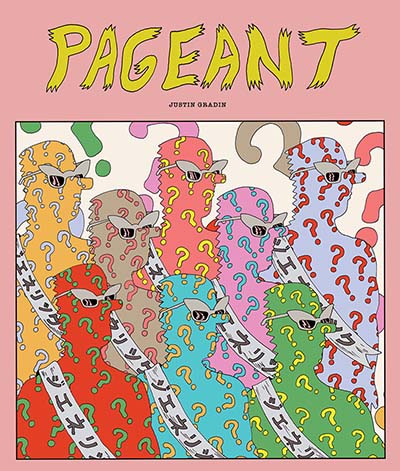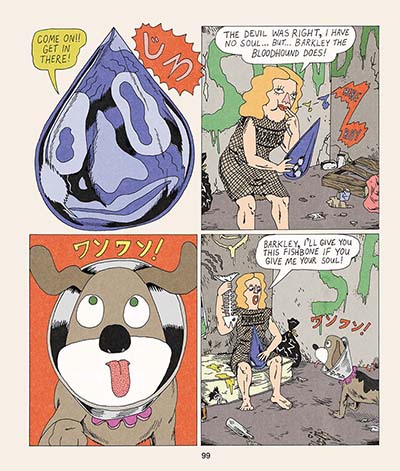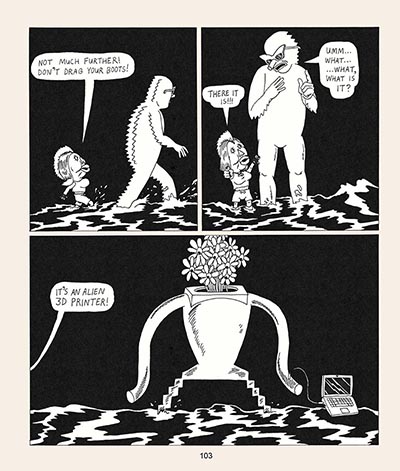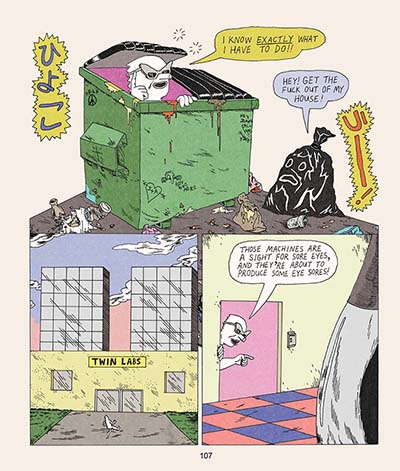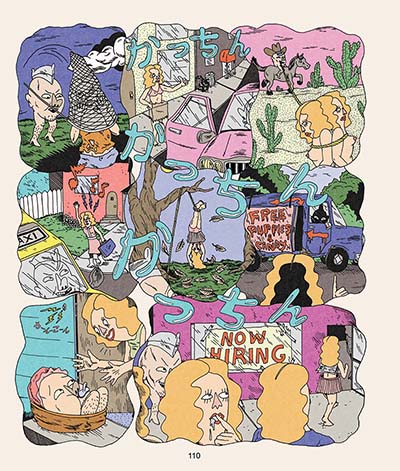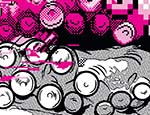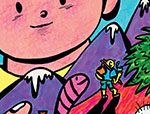The copywriter for the online catalogue listing of Justin Gradin’s sophomore graphic novel, Pageant, certainly doesn’t do him any favors by comparing him to legendary transgressive cartoonists: Gary Panter, Gary Leib, Marc Bell, and Mark Beyer. Unlike works by those authors, Pageant is a relatively straightforward (a bit on the bent side) workplace/romantic comedy, albeit sending the cast of characters through a dizzying Hell and dragging the reader along smiling the whole way.
The plot is fairly simple to begin with, reviled Twin Labs researcher Ponce Melee rents an apartment to gather DNA to clone a female companion. The clone doesn’t like Melee and runs away with the pizza delivery guy. Ponce doesn’t give up on love and continues to make more and more clones and reap more and more rejections.
This being a Justin Gradin effort, the original owner of the DNA Melee harvested enters the scene. She and her husband concoct a murderous (completely unrelated) insurance scam that connects to her clones…eventually. Throw in a puppet-wielding Satan, a ghostly murder victim, and an insurance investigator (shudder) and it all adds up to horrifyingly, ridiculous chaos. We aren’t even halfway through the book at this point!
Gradin’s art is in the tradition of those listed above, but the thin line and solid colors are more in line with a 2D animated film style. Not surprising, given the multidisciplinary Gradin has also been involved in animation in his career. However, the style he chooses to employ in Pageant perfectly captures the energy of his concept without the need for sound or motion. His characters fairly jump off the page as it stands.
Character design is a hodgepodge of odd, ugly, and weird: Ponce Melee is drawn as an electrified all-white creature, the original woman and her clones are drawn like a blow-up sex doll, and her husband is literally a head with two legs.
Gradin lays out Pageant on a four panel grid, his narrative races through this grid never repeating a sequence and changing things up for disorienting effect. Be it a full page of suspended body parts before they assemble into the first clone, a twelve-panel page showing Melee’s grating personality in fast forward, and our favorite page (52, to be exact) which has a winding stream of clones parading into existence and just as quickly out of Melee’s life in a series of circular inset panels highlighted with pink energy and jittery sound effects. Everything works to move the narrative forward while slowly heightening the complexity and absurdity of the characters’ actions.
While Justin Gradin may not yet have the same long publishing history of Panter, Leib, Bell, or Beyer, this book – along with the previous Mystic Debris – shows Gradin is well on his way to being one to which other cartoonists are compared. Sooner rather than later.
Justin Gradin (W/A) • Fantagraphics Books, $29.99
Review by Gary Usher





